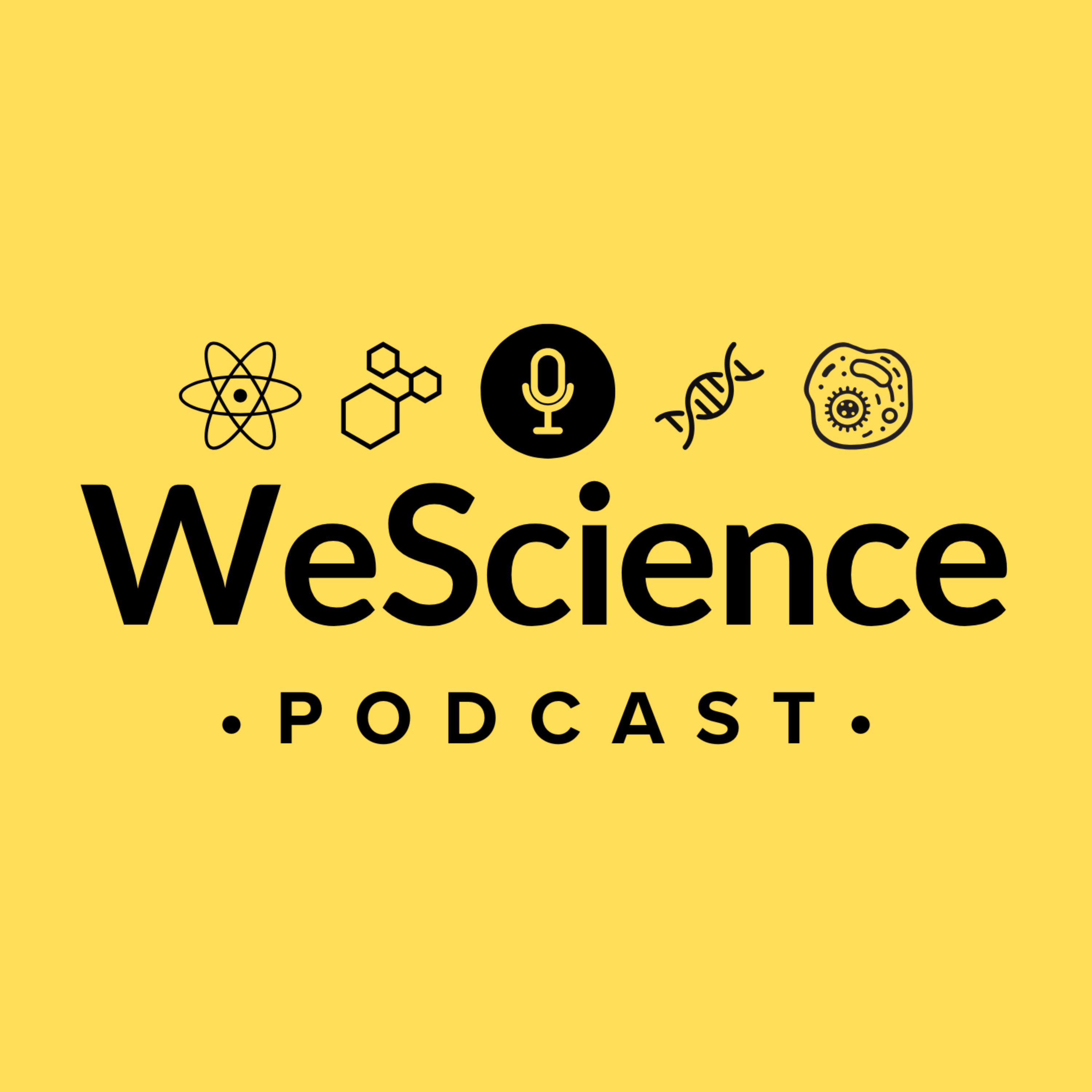WeScience Podcast

WeScience Podcast
Podcast Description
WeScience Podcast brings you inspiring conversations with world-leading scientists—from the lab bench to the global stage. Each episode dives into the personal stories, ground-breaking discoveries, and bold visions shaping our future. Whether you're a curious mind, a student, or a seasoned researcher, WeScience offers a fresh, accessible look at the human side of science. No jargon, just real talk. Join us on this 45-minute journey to discover what drives today’s brightest minds—and how science is changing the world around us. Tune in, get inspired and stay curious.
Podcast Insights
Content Themes
The podcast centers around topics like groundbreaking scientific discoveries, personal journeys in research, and innovative medical advancements. Episode examples include discussions on childhood leukaemia by Dr. Vincent Kuek, addressing the challenges in funding and treatment, and RNA therapeutics by Professor Rakesh Veedu, who shares his entrepreneurial journey within the scientific community, highlighting the significance of mentorship and drug development.

WeScience Podcast brings you inspiring conversations with world-leading scientists—from the lab bench to the global stage. Each episode dives into the personal stories, ground-breaking discoveries, and bold visions shaping our future. Whether you’re a curious mind, a student, or a seasoned researcher, WeScience offers a fresh, accessible look at the human side of science. No jargon, just real talk. Join us on this 45-minute journey to discover what drives today’s brightest minds—and how science is changing the world around us. Tune in, get inspired and stay curious.
Summary
In this episode, Dr. Amy Wilson shares her journey as an ovarian cancer researcher, discussing her motivations and challenges, the complexities of ovarian cancer, and the challenges faced in the field. She highlights the importance of immunotherapy, the role of leader cells in chemoresistance, and the potential of drug repurposing. Dr. Wilson also emphasizes the need for better communication between scientists and the community, the significance of research foundations in funding, the importance of patient involvement in science, and the challenges that women face in heathcare system. The conversation concludes with a call to action for participation in Frocktober, a campaign to raise awareness for ovarian cancer.
Keywords:
Ovarian cancer, immunotherapy, drug repurposing, cancer research, women’s health, ovarian cancer foundation, leader cells, science communication, hereditary cancer, research funding.
Takeaways:
Curiosity drives scientific inquiry from a young age. Personal experiences can shape one’s career path in science.
Ovarian cancer is often diagnosed at a late stage, complicating treatment.
Immunotherapy has not been as successful in ovarian cancer as in other cancers.
Leader cells contribute to chemotherapy resistance and disease recurrence.
Drug repurposing can be a cost-effective strategy in cancer treatment.
Effective science communication is crucial for public understanding.
Research foundations play a vital role in funding innovative cancer research.
Collaboration between scientists and the community enhances research impact.
Diversity in science is essential for addressing health inequities.
Chapters:
00:00 Introduction to Ovarian Cancer Research
01:39 Curiosity drives Science
03:21 Link between Music and Science
06:30 Transitioning to Ovarian Cancer Research
09:07 Understanding Ovarian Cancer
12:16 Types and Prognosis of Ovarian Cancer
14:53 Inherited Ovarian and Breast Cancer
16:55 Postdoctoral Research on Leader Cells
20:12 Mechanisms of Metastasis and Treatment Resistance 23:40 Immunotherapy Challenges in Ovarian Cancer
27:43 Drug Repurposing in Cancer Treatment
30:56 Lessons from Failures in Research
32:50 Impact of Research on Community and Transition to Advocacy
34:58 Navigating Research Challenges
35:56 The Critical Role of Research Foundations
39:13 Bridging the Gap Between Research and Patients 41:15 Communicating Science Effectively
43:16 Communicating Science through Social Media and Frocktober
45:28 Advocacy and the Importance of Community
49:31 Key Factors for Success in Her Scientific Career
50:51 Challenges Faced by Women in Science
51:36 Passion for Women’s Health Advocacy
55:00 Advice for Junior Scientists
56:23 Frocktober: Raising Awareness for Ovarian Cancer
Music: “Wescience Podcast Intro”
Artist: Wescience Podcast Composer: Carlos Aya Bonilla © 2025 Carlos Aya —
All rights reserved.Available in Youtube, Spotify, Apple Podcasts, Instagram and Tik Tok with @WeSciencePodcast handle. Website: www.drcarlosayabonilla.com

Disclaimer
This podcast’s information is provided for general reference and was obtained from publicly accessible sources. The Podcast Collaborative neither produces nor verifies the content, accuracy, or suitability of this podcast. Views and opinions belong solely to the podcast creators and guests.
For a complete disclaimer, please see our Full Disclaimer on the archive page. The Podcast Collaborative bears no responsibility for the podcast’s themes, language, or overall content. Listener discretion is advised. Read our Terms of Use and Privacy Policy for more details.